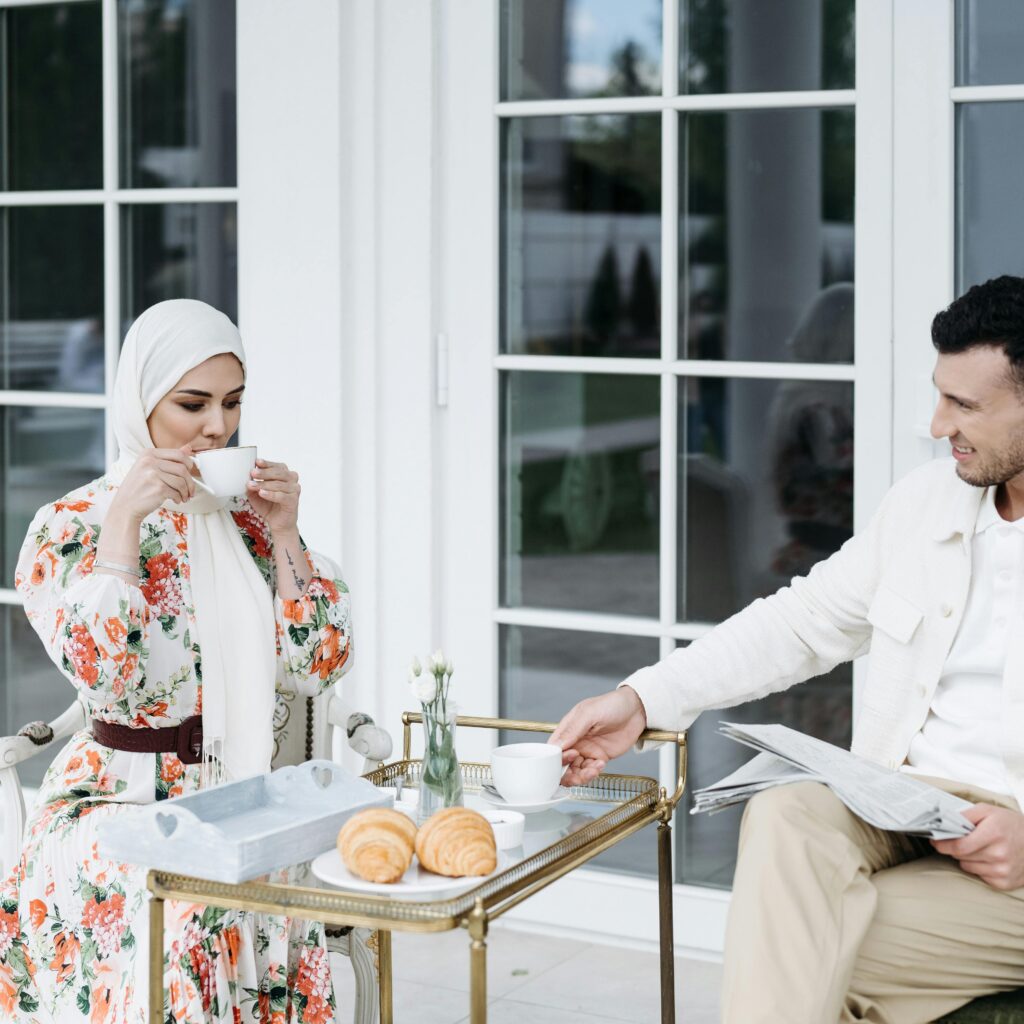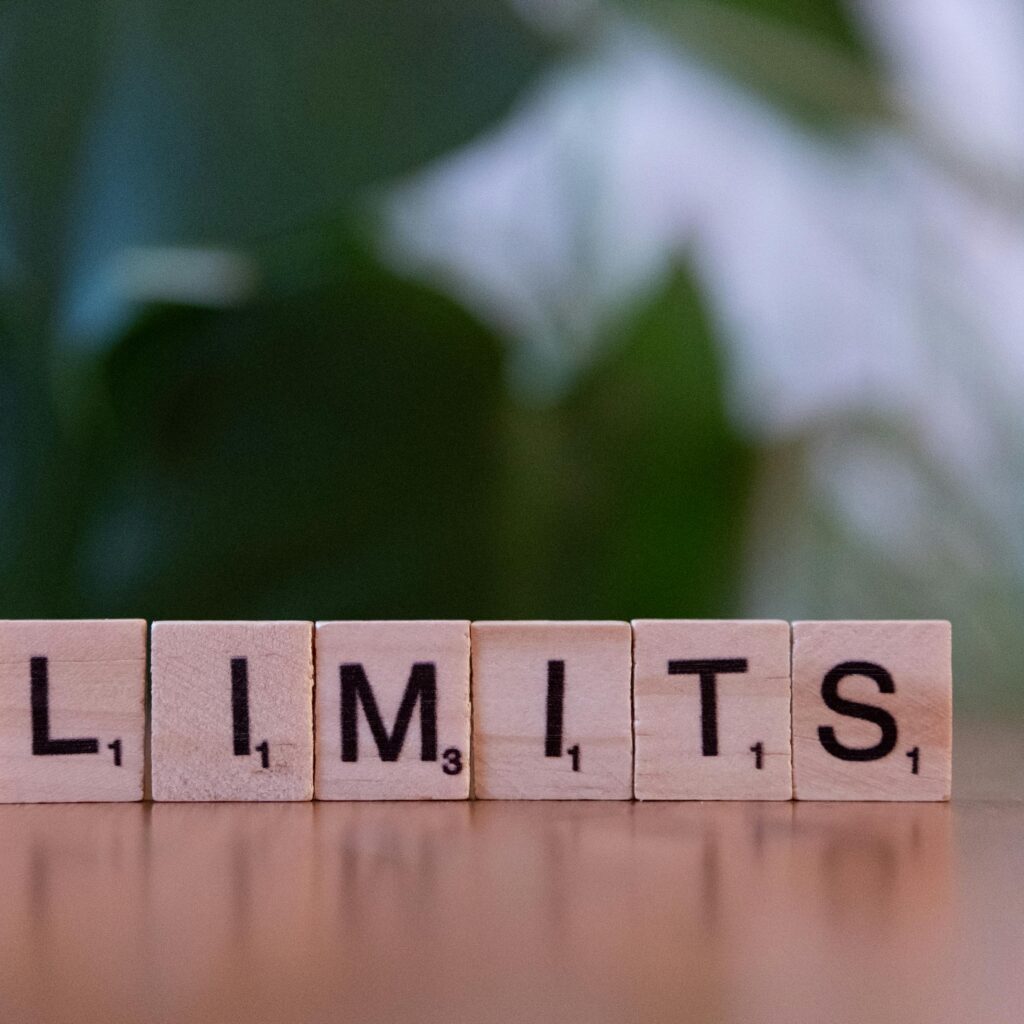
Setting clear relationship boundary can make a relationship strong while maintaining mutual respect and trust. Relationship boundaries are like invisible lines that define what is acceptable and what is not. They help partners feel safe, respected, and valued.
Without boundaries, relationships can become stressful, confusing, or even unhealthy. Many people avoid setting relationship boundary because they fear conflict or rejection. However, setting limits doesn’t push partners away; it strengthens trust and makes love more secure.
This guide will explain setting clear relationship boundaries while maintaining love, respect, and understanding.
Understanding relationship Boundaries
What Are Relationship Boundaries? Relationship Boundaries are rules or limits that protect emotional well-being, personal space, and individuality. They help create balance in a relationship by making sure both partners feel comfortable and respected. So, what kind of boundaries are we discussing, and are there different types? As we discuss below, there are different types of relationship boundaries.
https://amzn.to/4iY7rDJ
- Social boundaries – The level of independence in friendships and social activities. Example: “I need time with my friends without feeling guilty.”
- Physical boundaries include personal space, touch, and affection preferences. For example, “I don’t like hugging strangers.”
- Emotional boundaries include how much personal information is shared and how emotions are handled. For example, “I need time alone when I’m upset before talking about it.”
- Mental boundaries – Respecting different opinions, beliefs, and values. Example: “We don’t have to agree on everything, but let’s respect each other’s views.”
- Financial boundaries – How money is spent, saved, or shared. Example: “I prefer to keep separate bank accounts while splitting major expenses.”
- Relevant Reading
- Signs you’re an Excellent sex partner
- Fantasy JOI
- How to introduce anal sex to your partner
- Top 8 USA Cam Girl sites for Live Porn
Identifying Your Boundaries
Before setting relationship boundary, it’s important to understand personal needs and limits. Since everyone has different comfort levels and preferences, it’s necessary to reflect on:
https://amzn.to/420Dxb2- Past experiences – Were there times when someone crossed the line, making things uncomfortable?
- Emotional triggers – What situations cause stress, anxiety, or resentment?
- Personal values – What are the most essential things in life that your partner must respect?
For example, if being constantly available for texts or calls heightens your stress levels, a healthy boundary could be: “I won’t always respond right away, but I’ll reply when I’m free.”
Knowing personal limits prevents burnout, frustration, and misunderstandings in relationships.
Clear Communication of Relationship Boundary
Setting relationship boundary is one thing, but expressing them is equally important. Clear communication prevents confusion while ensuring both partners understand each other’s needs. Here are some tips for communicating your boundaries:
- Be direct but kind – Say what is needed without being rude or defensive.
- Use “I” statements – Instead of blaming, focus on personal feelings. Example:
- Wrong – “You never listen to me!”
- Right – “I feel unheard when I don’t get to share my thoughts.”
- Give specific statements – General statements like “I need space” can be confusing. A better way to say it is: “I need 30 minutes of alone time after work before we talk about our day.”
- Choose the right time – Avoid setting relationship boundary during arguments. Talk when both partners are calm and open to discussion.
Healthy relationships thrive when both people feel safe expressing their needs without victimization or judgment.
- More Reading
- Are Dating sites the Best Place to Meet a Partner
- Can Anal Sex Cause Cancer
- How to Prepare for Anal Sex for the First Time
- Best Anal Toys for Men and women
Respect Your Partner’s Boundaries
In the same way, you set boundaries for yourself and expect the other party to respect them. You should also do the same. Healthy relationships are a two-way street, meaning both people should feel heard and valued. So, how do you respect your partner’s boundaries?
- Listen without judgment – Even if a partner’s boundary seems different, respect it.
- Ask clarifying questions – “How can I support you better in this?” be understanding.
- Avoid pushing limits – If a boundary has been set, don’t pressure the other person to change it.
For example, if a partner says, “I need an hour alone every evening to unwind,” don’t take it personally. Instead, respect that they need personal time to recharge.
How to Enforce and Maintain Boundaries
Setting relationship boundaries is the beginning, and following through with them is what makes the difference. Sometimes, people forget or unintentionally cross borders, so gentle reminders are needed.

How to Reinforce Boundaries:
- Stay consistent – If a relationship boundary is important, don’t compromise on it to avoid conflict.
- Remind with patience – A simple “Remember, I prefer not to talk about work during dinner” is a polite reminder.
- Be firm but flexible – Some boundaries may change over time, so adjusting when needed is okay.
People who respect personal limits will appreciate the honesty, while those who constantly ignore them may not be the best match for a healthy relationship.
How to Handle Relationship Boundary Conflicts
With boundaries set and followed through, there may be times when they’re tested. One partner may feel restricted, while the other may feel their limits are being ignored. Conflict is normal in any relationship, but how it’s handled determines the strength of the relationship. Proper handling of conflicts in a relationship ensures they don’t blow over and make the whole affair toxic.
https://amzn.to/4kDdkbeTips for Handling Conflicts:
- Always stay calm and open-minded – Avoid yelling or blaming each other when discussing boundaries.
- Find a middle ground – Adjust boundaries slightly without sacrificing personal well-being if possible.
- Know when to walk away – A partner’s refusal to respect personal limits may indicate an unhealthy relationship.
For example, if one partner needs more space and the other needs more quality time, they can compromise by setting a schedule that meets both needs.
Why Self-Care is Vital to Maintain Boundaries
Boundaries are not just about protecting a relationship—they also preserve personal well-being. Taking care of mental and emotional health ensures that your energy is not drained trying to meet unrealistic expectations.
Ways to Prioritize Self-Care:
A person who respects themselves naturally attracts a partner who does the same.
- Take time for personal hobbies and interests.
- Spend time alone without feeling guilty.
- Say “no” to things that feel overwhelming.
FAQs
Why are boundaries important in a relationship?
Boundaries are essential in a relationship as they help create mutual respect, trust, and emotional safety. Both partners can express their needs without feeling overwhelmed or controlled. Relationships can become stressful without clear boundaries, leading to misunderstandings, resentment, or burnout.
How do I know if my boundaries are too strict?
You’ll know if your boundaries are too strict if they push people away or create emotional distance. Healthy boundaries should balance personal needs with relationship flexibility. Some signs to help you know if your boundaries are rigid include:
- Avoiding emotional intimacy
- Refusing to compromise at all
- Not allowing others to express their needs
What if my partner gets upset when I set boundaries?
If your partner is upset with you for setting boundaries and continues to ignore or disrespect them, it may be a sign that your relationship is unhealthy. Although some people may struggle with boundaries initially, they should get used to them because they respect their partner. However, if they react negatively:
- Stay calm and explain why the boundary is important
- Reassure them that boundaries strengthen, not weaken, the relationship
- Give them time to adjust
Can boundaries change over time?
Yes! Boundaries should evolve as a relationship grows. What felt comfortable in the beginning might change as trust builds. The key is communicating openly and checking in regularly to see if any adjustments are needed.
https://amzn.to/4kDdy24How do I set boundaries without feeling guilty?
You shouldn’t feel guilty when setting relationship boundary, as it’s a sign of respect and relationship care. However, if you feel guilty or think your partner will perceive you as selfish, here’s how to overcome it:
- Remind yourself that boundaries protect your well-being
- Understand that saying “no” is healthy
- Recognize that people who respect you will also respect your limits
Conclusion
Setting and maintaining boundaries will take practice, especially if it’s a new step in a relationship. But they’re essential for a happy, fulfilling relationship. The more you enforce your limits, the more natural they will feel.
Setting boundaries in a relationship is essential for building trust, love, and respect. Boundaries create emotional safety and help both partners feel valued.
- Know personal limits.
- Communicate boundaries.
- Respect each other’s needs.
- Enforce and maintain boundaries with patience.
Healthy relationships thrive on mutual respect and understanding. Setting boundaries shouldn’t push love away but strengthen and enrich it.
- More Reading
- Submissive JOI
- Body-safe sex toys
- Sex Toys
